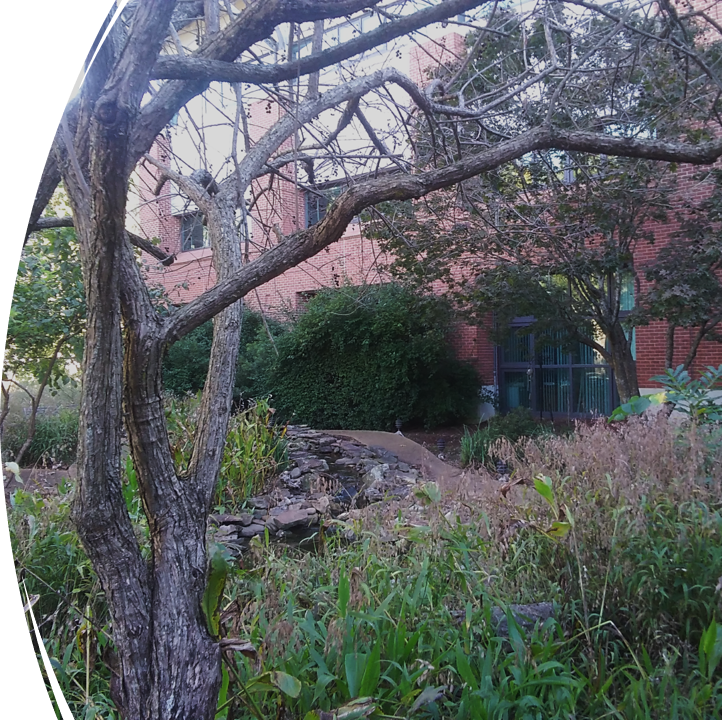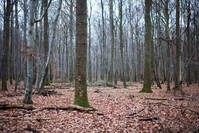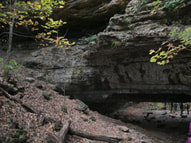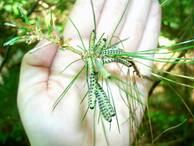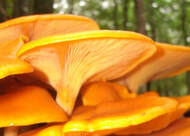Teaching Activities
Current Courses
|
Dendrology (Fall semesters, UG)
The study of the systematics, nomenclature, morphology, phenology, ecology, geographic range, and natural history of woody plants with emphasis on the southeastern U.S. Introduction to Urban and Community Forestry (Spring even semesters, UG/G) Forest management issues and opportunities, as well as educational extension/outreach program strategies within the urban forest context. Silviculture for Forest Health and Protection (Fall even semesters, Graduate) Review of the ecology and theories behind forest ecosystem health and silvicultural practices that can be applied to build resilience and treat abiotic and biotic stressors in global forest ecosystems, with an emphasis on forests of North America and the southeastern U.S. |
Previously Taught Courses
|
Principles and Practices of Forestry
Fundamental concepts of forestry for wildlife ecology majors, including an introduction to history of forestry, dendrology, forest ecology, forest health, silviculture, mensuration, forest management, and ethics. *Instructor at Arkansas State University. Forest Health and Protection Fundamental concepts of forest entomology and pathology. Lectures focus on the ecological principles and management of forest pests and pathogens in the U.S., while a supplemental lab section provides students with a closer look at the pests and pathogens discussed in class. *TA at the University of Missouri-Columbia. Learning Strategies for College Students
Students' learning strategies are assessed, and their needs are given greatest emphasis. Learning through reading and listening are given major consideration as are the corollary skills of studying and note taking. Students also explore goal setting, time management, diversity, résumé development, academic ethics, study abroad, career choice, and how to write research papers. *TA at the University of Missouri-Columbia. |
Economic Entomology
Taxonomy and identification of insect pests related to the environment. Lab section. *TA at Arkansas State University. Mycology Morphology, cytology, genetics, and physiology of fungi. Lab section. *TA at Arkansas State University. Applied Ecology
The application of ecological principles that serve as a basis for the management of wildlife and fisheries in terrestrial and aquatic habitats. *Instructor at Mississippi State University. Forest Ecology The principles of community, ecosystem, and population ecology, as well as the effects of environmental and anthropogenic activity on forest ecosystems, namely their composition, structure, and function. Through a supplemental lab course, students learn how to take basic forest measurements, and analyze and interpret data collected in the field. *TA at the University of Missouri-Columbia. |
Teaching and Assessment Professional Development |
- Maroon Academy for Teaching Excellence; Mississippi State University Center for Teaching and Learning
- Let’s Build a Community! Community of Practice for Online Education; Mississippi State University Center for Distance Education
- Writing to Learn Community of Practice; Mississippi State University Center for Teaching and Learning
- Teaching Portfolio Workshop; Mississippi State University Center for Teaching and Learning
- Practical Teaching: Essential Teaching Practices in 15 Minutes Per Week Community of Practice; Mississippi State University Center for Teaching and Learning
- Inclusive Teaching Community of Practice; Mississippi State University Center for Teaching & Learning
- Online Teaching 101; Mississippi State University Center for Teaching & Learning
- New Faculty Teaching Academy; Mississippi State University Center for Teaching & Learning
- Exploring Diversity in Implicit Leadership Theories and their Role in Inclusive Teaching; CIRTL Network
- CIRTL First Year Faculty Teaching Academy; CIRTL Network and University of Florida Center for Teaching Excellence
- The Inclusive STEM Teaching Project; Boston University on edX
- Advancing Learning Through Evidence-Based STEM Teaching; CIRTL Network via Boston University on edX
- An Introduction to Evidence-Based Undergraduate STEM Teaching; CIRTL Network via Boston University on edX
- Performing Educational Research Using Qualitative Research Methodologies (SoTL Workshop); University of Georgia Center for Teaching and Learning
Mississippi State University, Department of Forestry, Thompson Hall, Box 9681, Mississippi State, MS 39762
The views and opinions expressed on this website are not endorsed by and do not reflect the views of Mississippi State University. The contents of this website have not been reviewed or approved by Mississippi State University.
The views and opinions expressed on this website are not endorsed by and do not reflect the views of Mississippi State University. The contents of this website have not been reviewed or approved by Mississippi State University.
